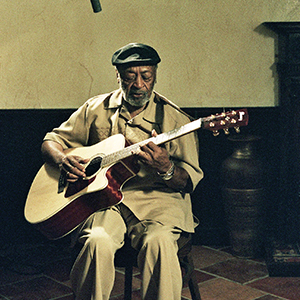The origins of pop
Lucy Lethbridge
Arena: American Epic
BBC4
American Epic is a three-part examination of the roots of American music, the sound that now dominates popular culture all over the world. It takes us back to where it all began, the 1920s, when the pioneers of modern recording went into deep rural and ethnic America to find new music and new talent to sell to a new generation.
“The Big Bang”, the title of the first episode (21 May), was country star Johnny Cash’s name for the 1927 talent sessions in a former warehouse in Bristol, Tennessee, run by Ralph Peer, a producer at Victor Talking Machine Company. He advertised for singers and musicians and what emerged, from the Appalachian hills, the mines, the farms and the railroads, was to change the shape of popular music forever. They were the sounds of the rural poor: mournful love songs, ballads of waiting, of poverty and of God. Early footage shows the Carter family of Appalachia, A.P. and his wife Sara and cousin Maybelle, now considered the foundational first family of American country music; they sing with a seriousness that is all about the song not the performance and they seem, by today’s standards, to be barely performing at all, simply giving out music. In 1927, Carter read about the Bristol sessions – and the trio climbed into their Model-T Ford, in their working clothes, and drove to Bristol where, ashamed of their poor appearance, they crept in by the back door of the warehouse.
25 May 2017, The Tablet
Musical lightning
Television
Get Instant Access
Continue Reading
Register for free to read this article in full
Subscribe for unlimited access
From just £30 quarterly
Complete access to all Tablet website content including all premium content.
The full weekly edition in print and digital including our 179 years archive.
PDF version to view on iPad, iPhone or computer.
Already a subscriber? Login




